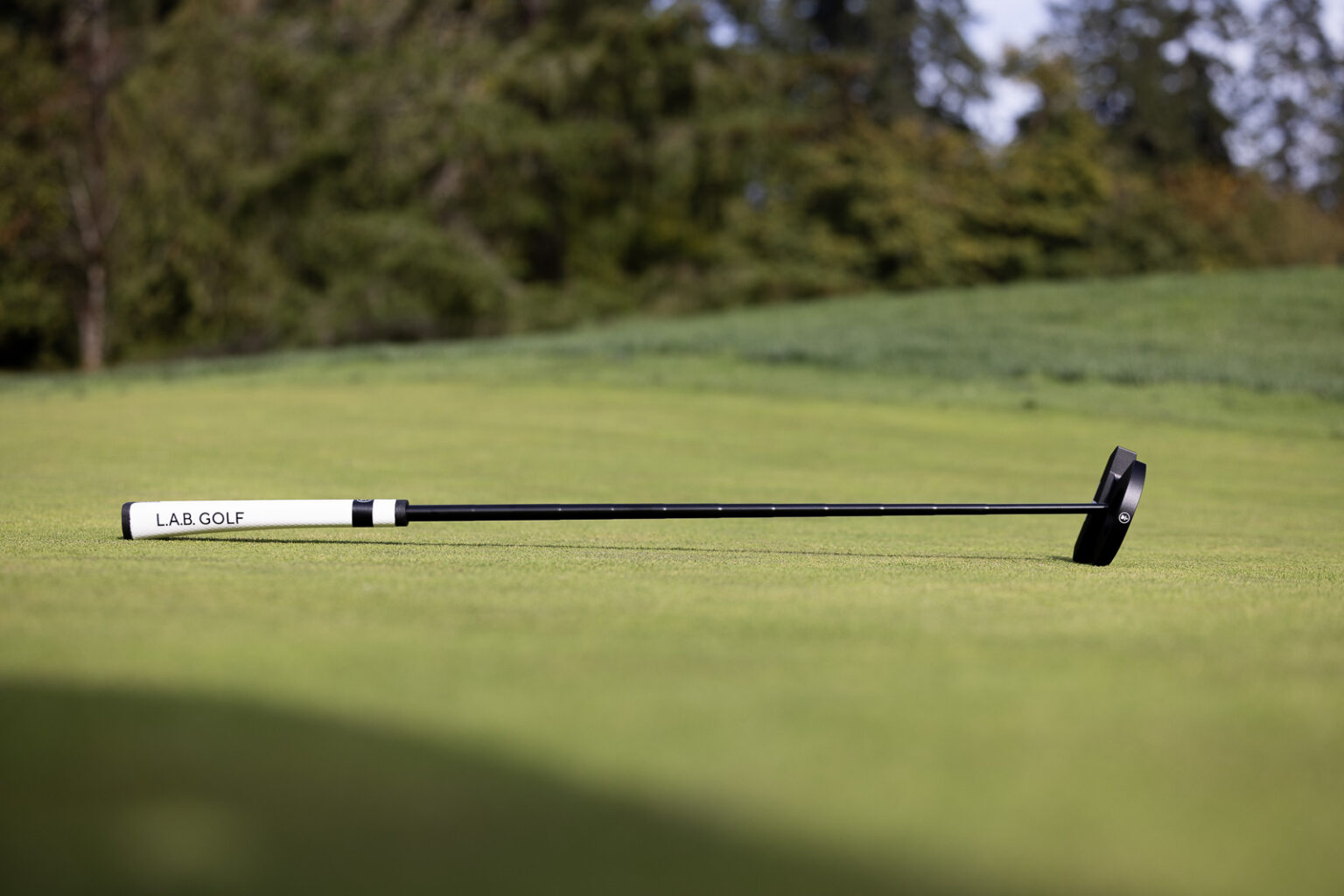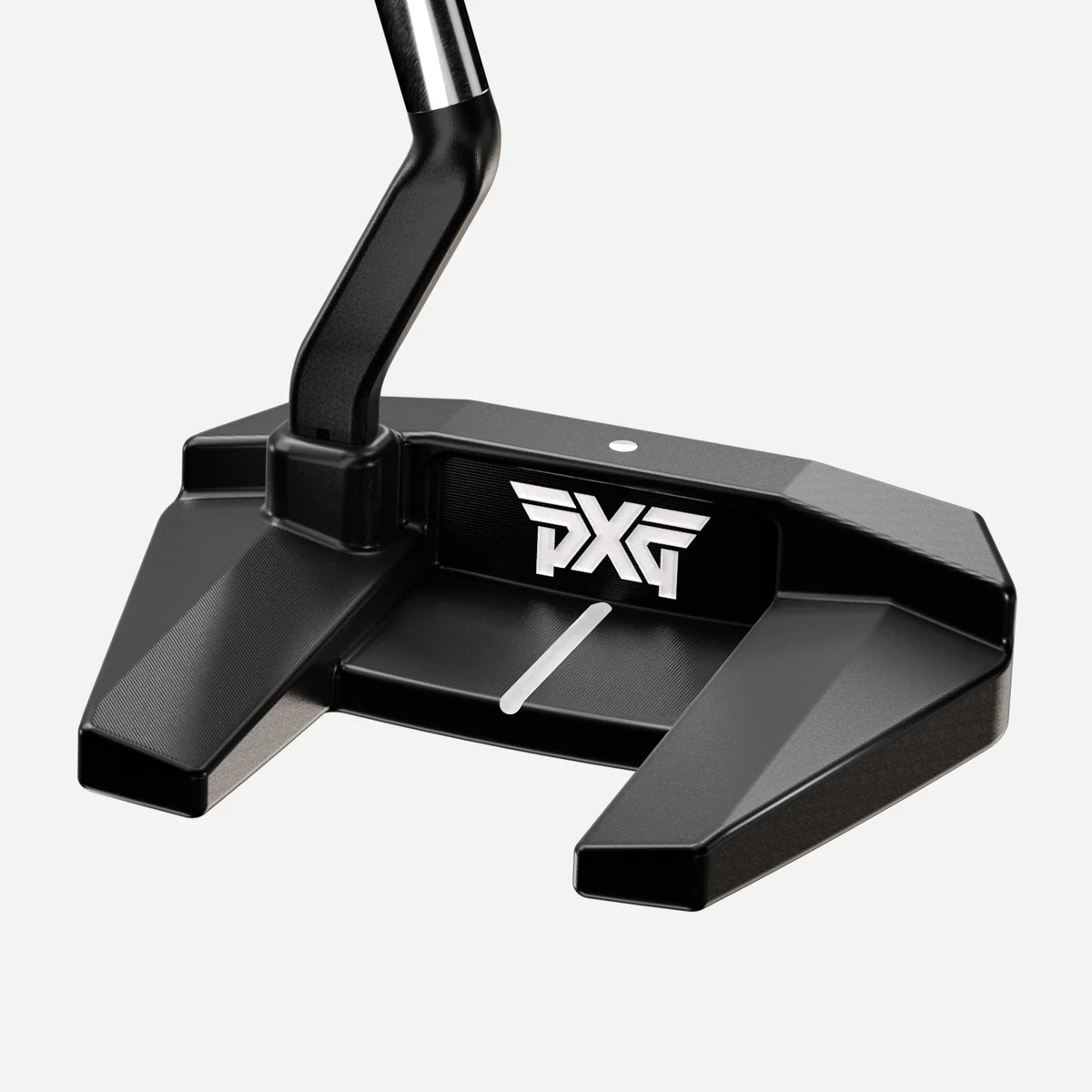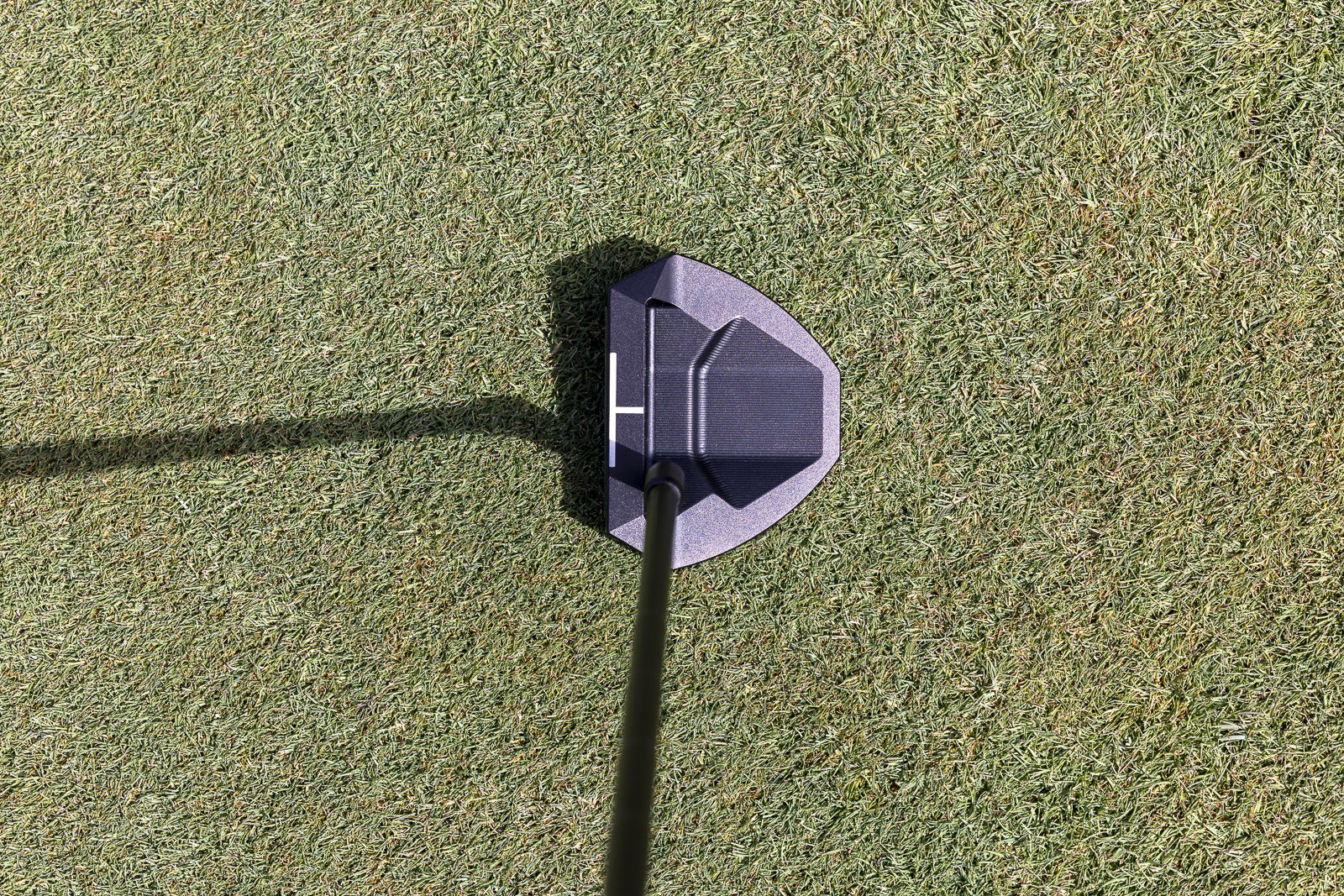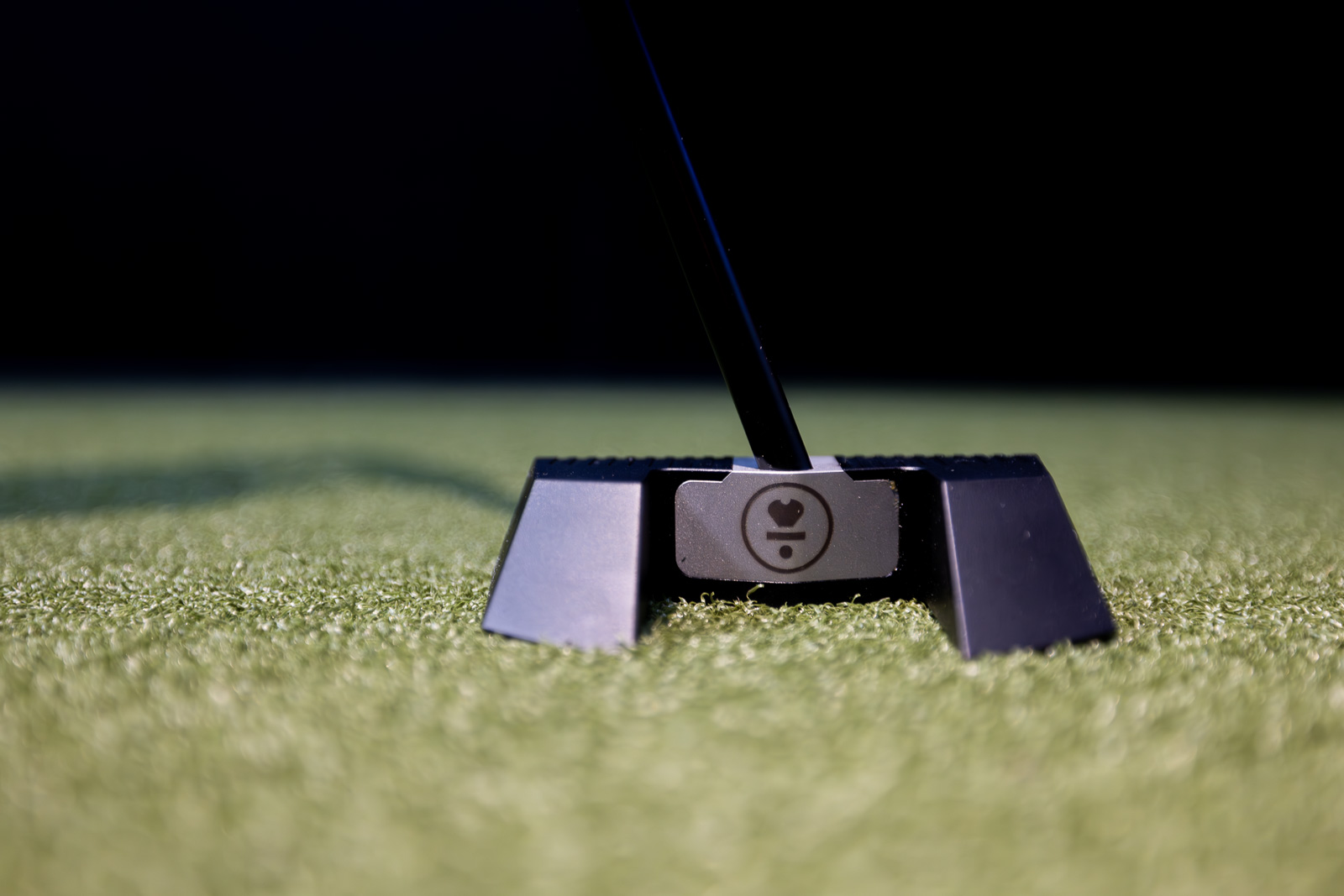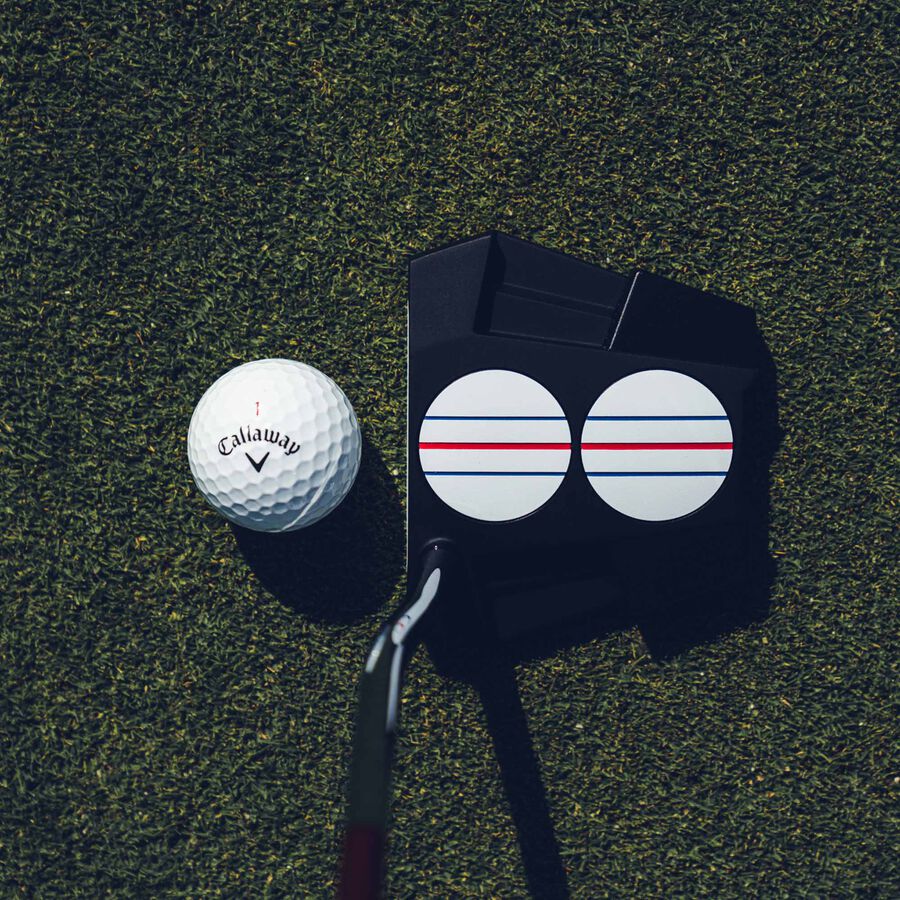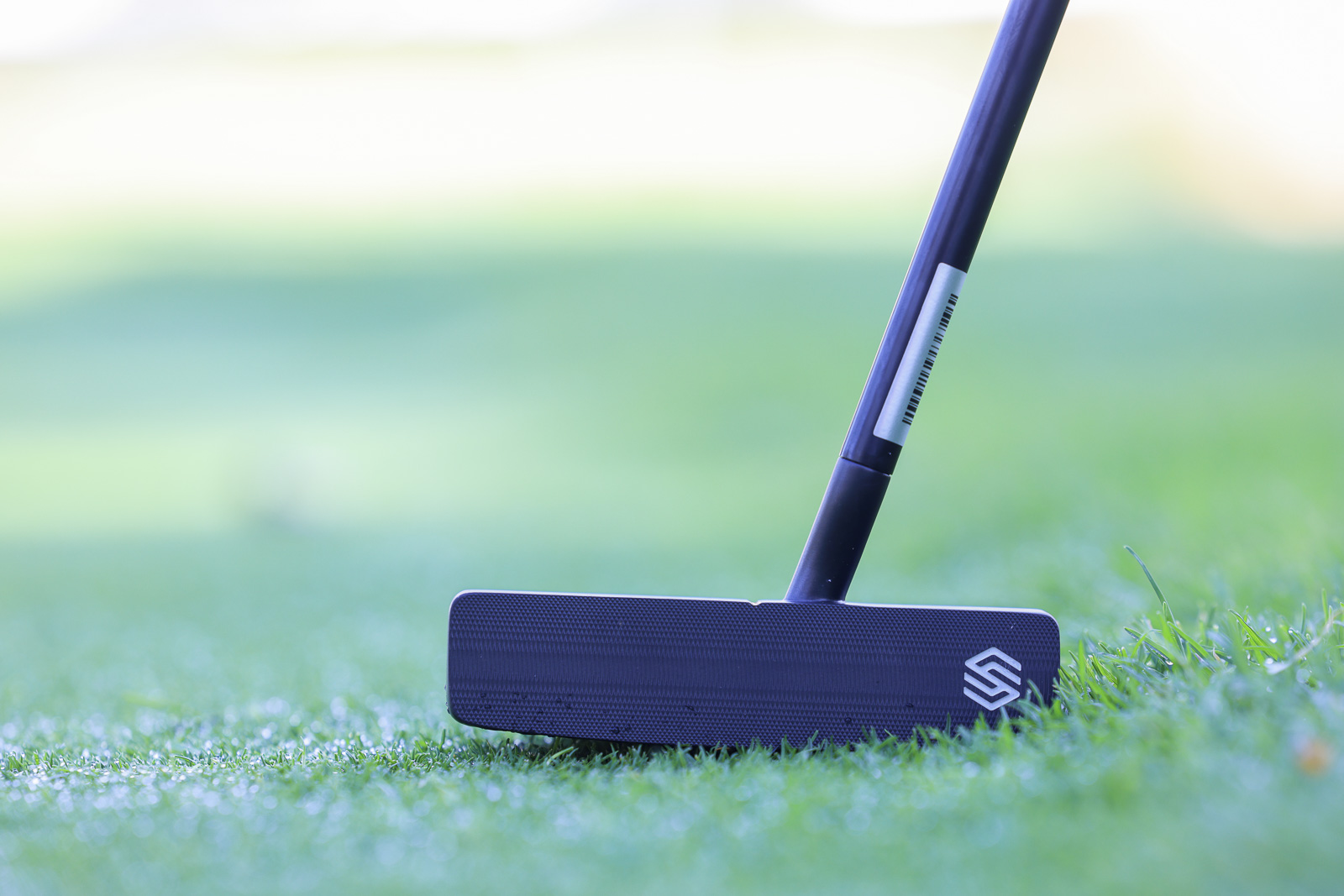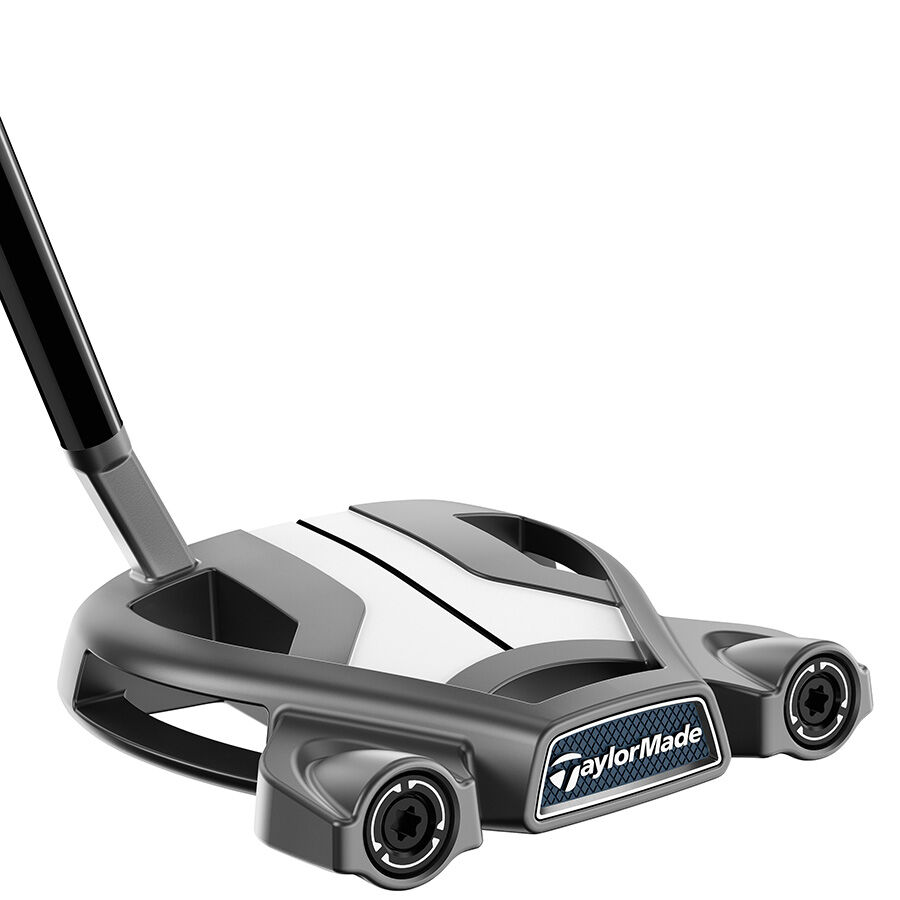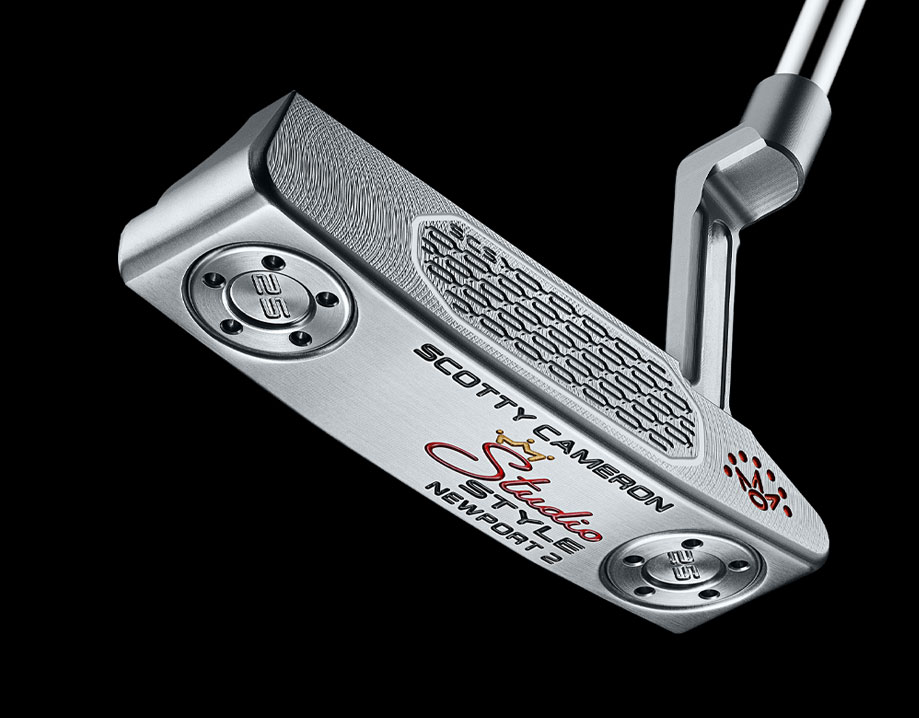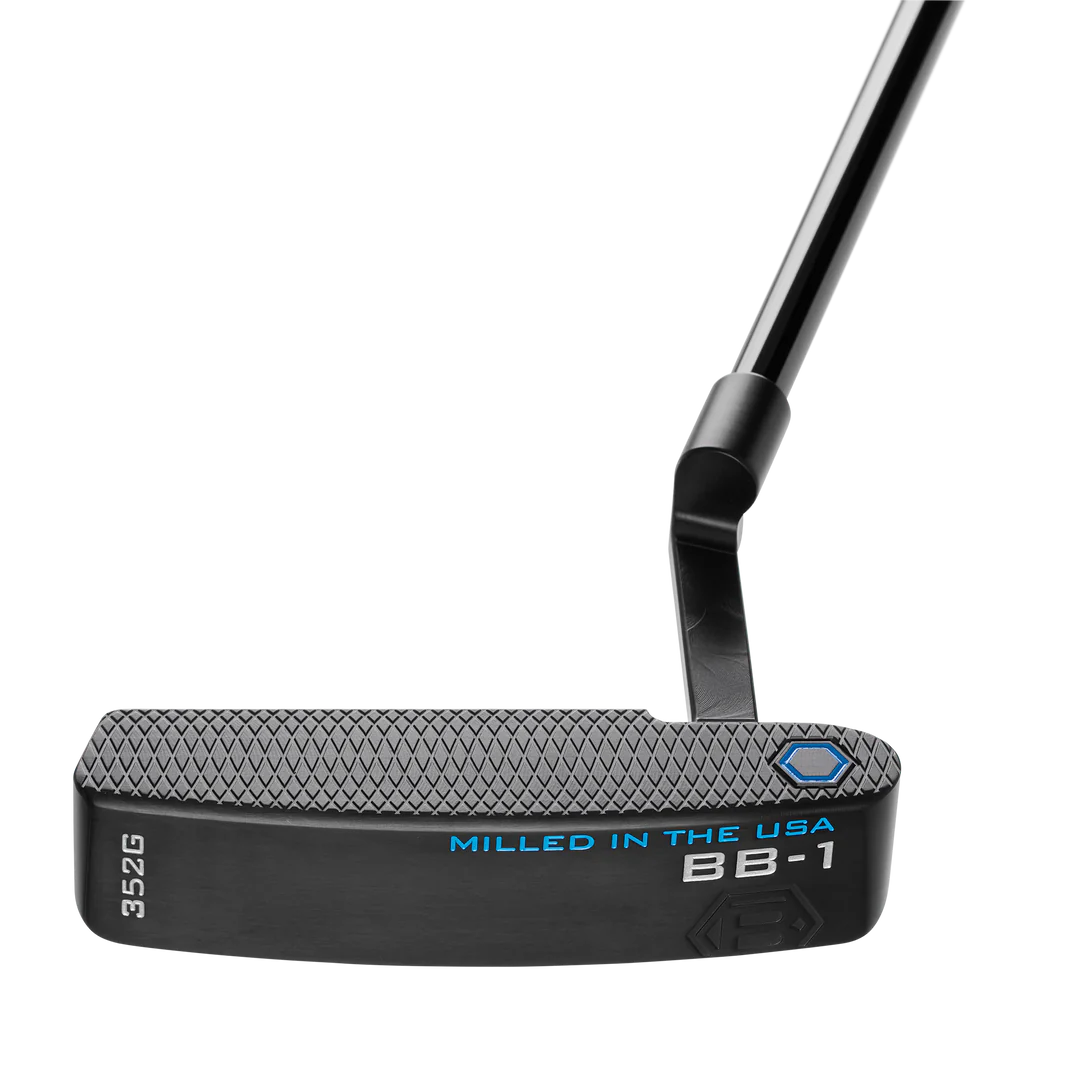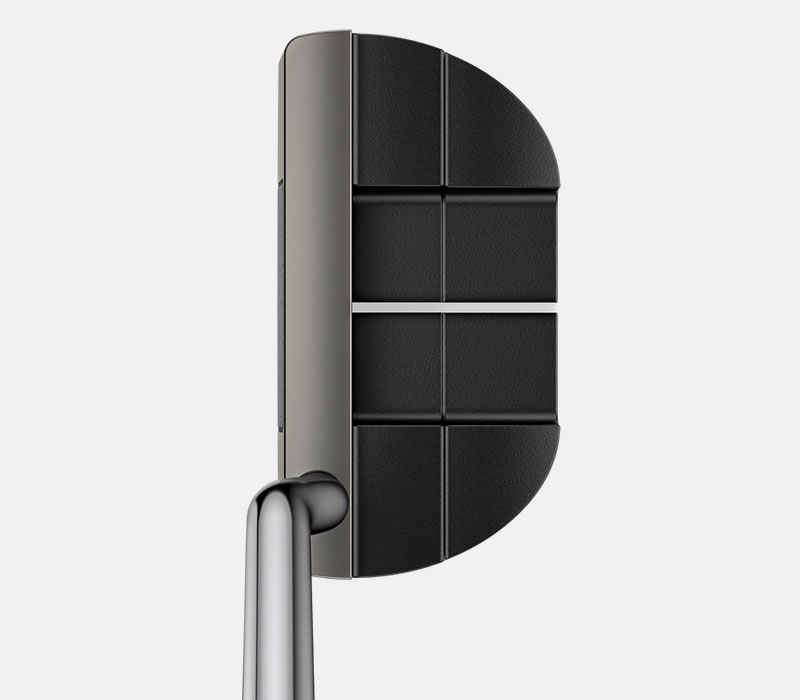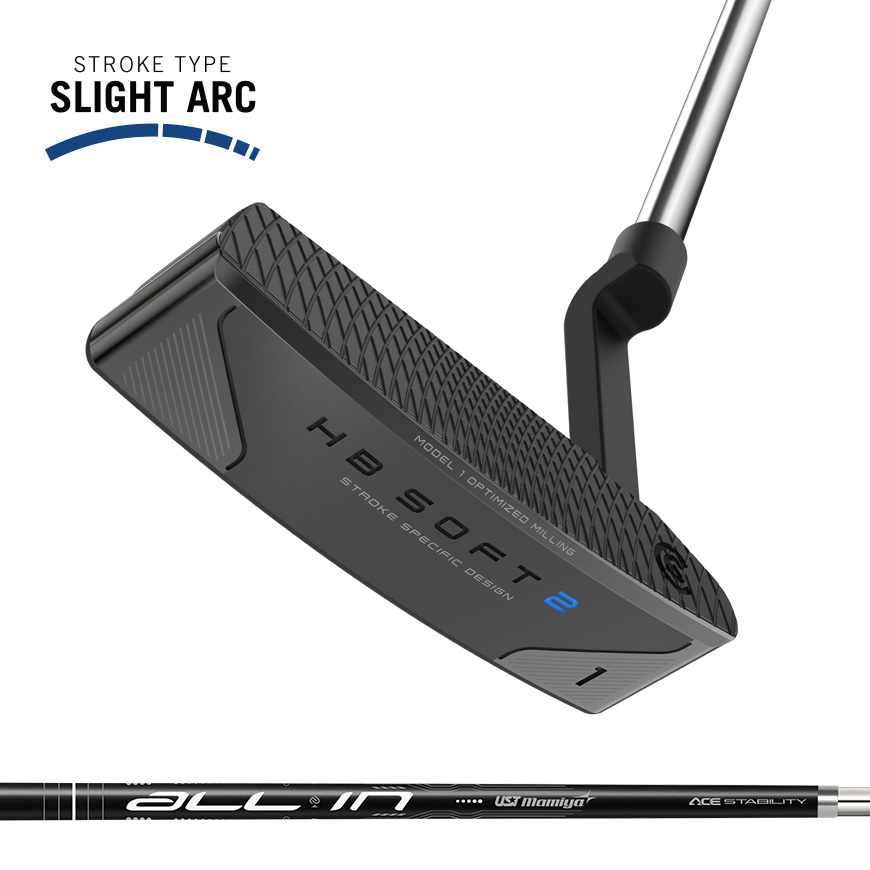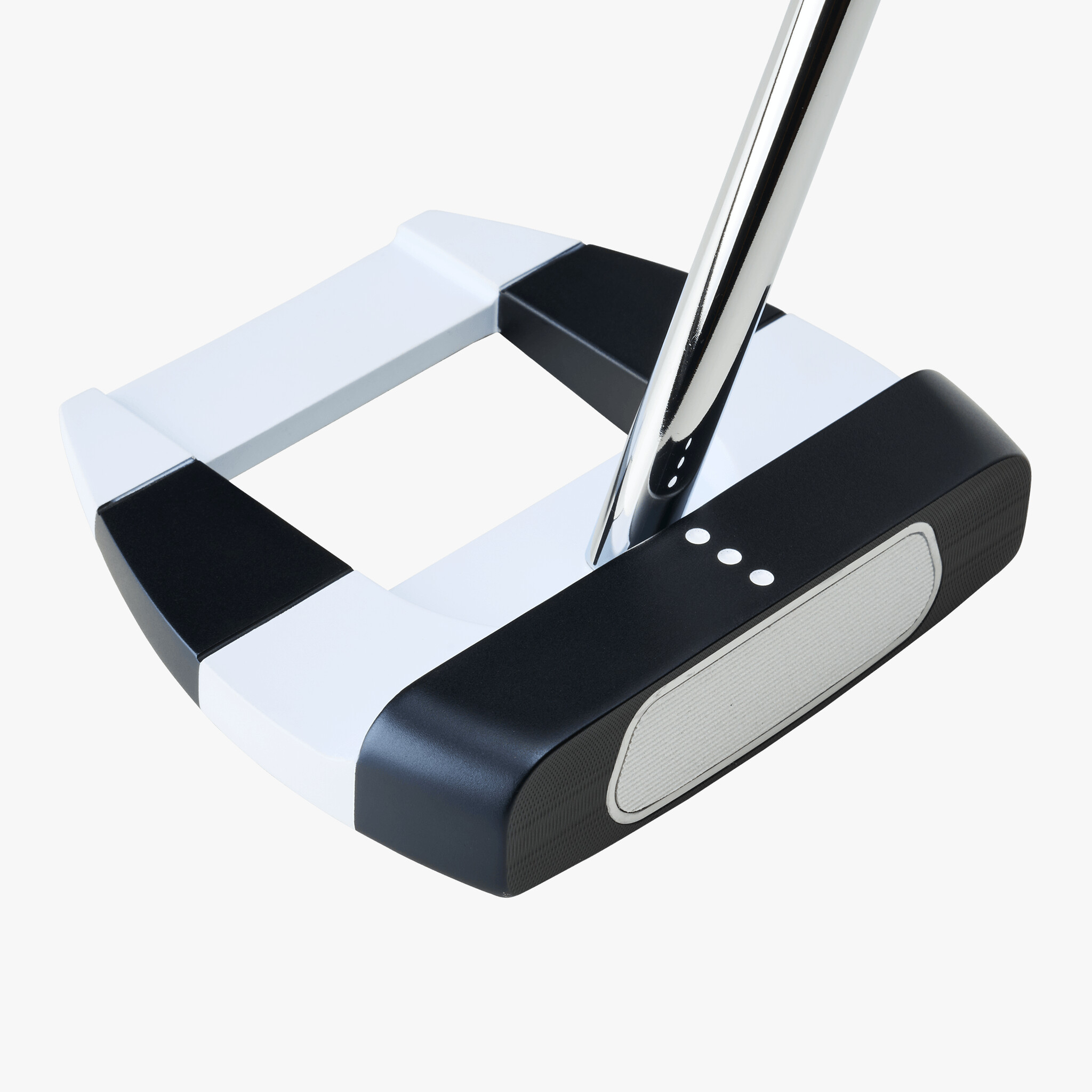The putter is golf’s great equalizer.
For all of the intimidation of a brutally long hole, a forced carry over water into the wind, or a short-sided chip shot, more often than not it’s the final few feet on the putting green that have the biggest impact on a golfer’s scorecard.
An otherwise skilled player can be rendered entirely noncompetitive if they can’t putt.
And conversely, a golfer who plods around the course hitting nothing but duffs and wormburners but who regularly catches fire with the flatstick can score far better than the eye test would ever predict.
There’s a reason there are enough cliche catch phrases having to do with putting to fill this entire post (don’t worry, we’ll spare you). It’s because putting is as important — or, depending on who you ask, more important — than any other part of the game.
Generally speaking, if you’re going to score your best, you’re going to have to putt your best.
And to putt your best, you’re going to need the best putter for your stroke.
So, why is the putter so often the last club that comes to mind when a golfer thinks of upgrading equipment? How many golfers do you know who have played the same putter for more than a decade even when it’s obvious that they’re not great putters? And how many of those same golfers buy a new driver every couple of years?
It seems that because the putter requires the smallest stroke, somehow many golfers don’t think there’s much of a difference between one model and another.
But that’s ridiculous. Manufacturers and designers are continuously refining their approach to making putters, leveraging technology advancements and tweaking weighting and dimensions to make improvements just as they are with all of the other clubs in the bag.
Bottom line: if you’re not putting as well as you’d like, it might be time to consider a new putter. If you’re ready to drain more bombs, limit three putts, and shoot lower scores, this post is for you.
We’ll continue to update this post as new putters are released and tested.
My Favorite Putter: PXG Bat Attack ZT Putter
You were probably expecting to see a L.A.B. here, weren’t you? Honestly, me too. And we’ll get to those.
But no club in the history of my golf career has made a bigger impact on my game than the PXG Bat Attack ZT.
This is their answer to L.A.B.’s zero torque technology.
I got sent the club, and legitimately didn’t think much about it. Until I played with it.
15 rounds in, I’ve gone from +.8 strokes gained (against a 10 handicap) with the LAB Mezz.1 to +3 strokes gained putting with the PXG.
My confidence putting is at an all-time high.
And I even broke 80 for the first time in two years with it on a recent trip to Ballyneal.
Full Review: The PXG Bat Attack ZT is My New Favorite Club.
I'm lagging it better, draining more putts inside of 10 feet, and feeling more confident over the ball. What's not to like? Am I worried about whether or not this is a "true" zero-torque putter? No. No, I am not.
Best Putter for Most People: L.A.B. OZ.1 HS
LAB Putters have been all the rage for the last few years. And for good reason. The technology is legitimately impressive.
While the DF3 might be the most stable and forgiving for short range putts, I’ve found it to struggle at longer lag putts.
Others, also won’t be a fan of the center shafted design of most LAB putters.
Which is why I think their newest model the LAB OZ.1 HS is the best fit for most people. It’s their first heal shafted design, and thus, is the most similar to a traditional putter, while still giving you the benefits of zero torque.
But the reality is, you’ll want to test them for yourself to see what the right fit is for you.
Full Review: The OZ.1 HS is the LAB Putter for Those Who Don’t Like LAB Putters.
Finally, LAB releases a heel-shafted design that still incorporates the lie angle balance technology that's made them the most hyped brand in golf. This is the LAB I've been waiting for, and it's the one that's worked best for me.
Editor’s Choice: L.A.B. Mezz.1 Max
Honestly? I think every other manufacturer should be worried. L.A.B. is doing something special, and all you need to do is read the comments on some of the reviews of their putters to see that they’ve developed a hugely loyal following.
Now that I’ve personally spent significant time with their putters? I get it. I’m in. I’m a believer.
This is purely a feel thing. The DF3, OZ, and Mezz are all fantastic. But this one ticks a lot of boxes, and has been the preference of many golfers I know who have tested all the LAB models.
And up until I used the new OZ, it was my favorite LAB putter I’ve used.
If the DF3 isn't for you, then you might consider the Mezz.1 MAX. It's a different look that we've found easier to line up properly, and it's proven deadly on the course. Downside? It ain't cheap.
Best Golf Putter for Alignment: Odyssey 2-Ball Eleven Triple Track
If ever there was a putter that looked like it could make a putt without you having to even swing the club, this would be it. There’s not just one line to help you with alignment. Not even just two lines. There are three alignment lines AND Odyssey’s 2-ball guide system to make it even easier to align the putter face, ball and target.
This is a face-balanced mallet putter that’s likely best for players without much arc and face rotation in their putting strokes.
The face includes Odyssey’s well-known and well-regarded White Hot insert. And the putter features two 15-gram adjustable weights to help you dial in your precise setup.
If you struggle with hitting the ball where you think you’re aimed, alignment might be the issue. The Odyssey 2-Ball Eleven Triple Track includes every alignment aid you could imagine and might be a round-saver for you.
Best Putter Value: Stix Compete Putter
When I reviewed the full Stix golf clubs set, one of the very first things that impressed me was the putter. In fact, I drained a 5-footer for birdie the very first time I rolled the rock with this thing. It made such an impression on me that I kept the Stix putter in my daily bag even after I’d moved on from using the rest of their clubs. So, yeah, I really like this putter.
Recently though, they gave this putter an upgrade. Better grip, higher end fit and finish, and increased feel.
The result is the Stix Compete Putter, which comes in 3 different styles.
At $149, it’s a little bit more than the original, but is still less than half the price of many of the putters listed in this post.
If you’re looking for a high-end putter, without the high-end price, this is definitely one to consider.
Also, the previous putter that came with the box set can currently be had for just $64 – a total steal – but I doubt that will last long.
Full Review: The Stix Compete is a High-End Putter at a Mid-Range Price
The Stix Compete line of putters represents a solid upgrade over their standard putters, and feel and performance on par with more expensive putters from big name brands.
Most Forgiving Putter: TaylorMade Spider Tour
The TaylorMade Spider line has become one of the most recognizable putters in golf. Over the past decade, it’s gone from a bit of a curiosity to one of the most stable, tour-proven mallets out there.
The 2025 Spider Tour doesn’t reinvent the wheel, but that’s kind of the point. This year’s version continues to deliver the ultra-stable feel, clean alignment, and consistent roll that’s made it a staple in so many bags, including Scottie Scheffler’s and Rory McIlroy’s.
Design-wise, the Spider Tour still leans on its perimeter weighting to reduce twisting at impact. That’s what gives it such impressive forgiveness, even when you miss the center of the face. The updated True Path alignment system on top is subtle but effective, and the milled face insert helps produce a smoother, more consistent roll.
If you’re the kind of player who struggles with short putts under pressure or has a tendency to yank or push it off line, the Spider Tour’s design really helps neutralize that.
The TaylorMade Spider Tour remains one of the most stable and forgiving mallet putters in golf. With its perimeter weighting, True Path alignment, and consistent roll, it's perfect for golfers who don't always hit the center of the face.
Best Overall Blade Putter: Titleist Scotty Cameron Studio Style Newport 2
Most hardcore golfers would agree that Scotty Cameron putters are the top of the line. When you flip on the TV, you’ll find a lot of tour players who either play a Scotty Cameron or who would if they didn’t have a deal with a different manufacturer.
Each one of these putters is like a work of art, meticulously crafted from the finest materials. Scotty Cameron himself is still in charge of designing each model, and his Newport 2 line has been one of the most classic and tour trusted.
The latest Newport 2 iteration features a face insert for the first time. That may be a turnoff for some who may want to stick with an older model, but Scotty Cameron himself is bullish on the performance of this new Studio Carbon Steel face insert that includes chain link milling.
Scotty Cameron's classic and tour-trusted Newport 2 design now gets a chain link-milled face insert and slightly thicker topline.
Honorable Mention Best Overall Blade Putter: Bettinardi BB1
Bettinardi is another artisan-like manufacturer that turns out putters so beautiful you’re almost afraid to use them. With their BB1 model, they’ve created a face-balanced design that should favor players with a more straight-back-and-through stroke.
One component of Bettinardi putters that is regularly raved about is the soft feel and distinctive feedback you get in your hands after a putt. Bettinardi credits their “Perpetual Flymill Face Milling” technology which they say produces the kind of feedback tour-level players demand and also creates a more consistent roll.
While this putter has been available for a couple of years now, it is still very worthy of this list in 2026.
If you're looking for true quality craftsmanship, tour-level feedback, and just a gorgeous blade-style putter, the Bettinardi BB1 may be perfect for you.
Best Mid-Mallet Putter: Ping Scottsdale DS72
Some golfers want the forgiveness of a mallet but the aesthetics of a blade. Well, you can’t quite get everything in any one design, but a mid-mallet-style putter is kind of the best of both worlds.
The Ping Scottsdale DS72 has a ball-width insert that matches the ball-width cavity to make aiming easier. The back cavity also includes perpendicular visual cues to help you square the face with your target line at address.
This model is likely best matched with a straight stroke as opposed to one with more arc.
If you want the forgiveness of a mallet but not quite the big, bulky head, a mid-mallet design like the Ping Scottsdale DS72 may be best for you.
Best Toe-Hang Putter: Cleveland HB SOFT 2
If your putting stroke includes a bit of an arc, where you open and close the putter face during your stroke instead of bringing it straight back and through, you’ll likely benefit from some extra weight in the toe of the putter. And this toe-hang option gives you a lot of bang for your buck.
The milling process on putter faces, which helps to provide great feedback and distance and speed control, often constitutes one of the biggest manufacturer costs. But Cleveland has developed a more affordable milling process that seems to be competing quite adequately with more expensive models.
The new HB SOFT 2, which features a slightly enlarged, modern blade with a plumber’s neck hosel, provides tremendous value from a well-known manufacturer.
If you've got a slight arc in your stroke, you may prefer a toe-hang style putter. The Cleveland HB SOFT 2 offers excellent value in that category.
Best Putter to Help a Push-Bias Stroke: Odyssey Ai-ONE Square 2 Square
New in 2025 and available in three Odyssey signature head shapes – Jailbird, #7, and Double Wide – the Ai-ONE Square 2 Square is a toe-up designed putter, meaning the center of gravity is heel-ward of the shaft, as opposed to a putter with toe hang where the weight is more toe-ward of the shaft.
What that means is that the putter face in a toe-up design like the new Square 2 Square models is going to naturally want to square as the putter moves through impact. So, if you’re the type that tends to push the ball, this putter is designed to help that face close a bit at impact so that the ball actually starts on line rather than leaking out to the right (for a righthanded putter).
A push bias often shows up in a stroke that doesn’t have much arc but instead is trying to remain square throughout the entire stroke. If that’s you – the kind of putter that tries to take it straight back and through – this Odyssey design may help you a lot.
If you tend to push your putts, this new Odyssey design could save you a lot of frustration. The toe-up balance helps you naturally square the face at impact without changing your straight-back-and-through stroke.
Recapping the Best Golf Putters of 2026
If you can make more putts, you can have a lot more fun playing golf. Of that, I’m absolutely certain.
So whether your style and stroke favors a blade, a mallet or something in between; whether you’d benefit from a face-balanced design or a toe-hang model; whether you want every possible modern hack to help with your alignment or you prefer the old-school simplicity that worked for the great Bobby Jones, we’ve given you some of the very best putter options worth your consideration.
So when you’re thinking about golf club upgrades, don’t overlook the putter. You may be able to save more strokes by getting that club dialed in than with any other.
To recap:
- My Favorite Putter: PXG Bat Attack ZT
- Best Putter for Most People: L.A.B. Golf DF3
- Editor’s Choice: L.A.B. Golf Mezz.1 MAX
- Best Putter for Alignment: Odyssey 2-Ball Eleven Triple Track
- Best Putter Value: Stix Compete Putter
- Most Forgiving Putter: TaylorMade Spider Tour
- Best Overall Blade Putter: Titleist Scotty Cameron Studio Style Newport 2
- Honorable Mention Best Overall Blade Putter: Bettinardi BB1
- Best Mid-Mallet Putter: Ping Scottsdale DS72
- Best Toe Hang Putter: Cleveland HB SOFT 2
- Best Putter to Help a Push-Bias Stroke: Odyssey Ai-ONE Square 2 Square
What To Look For in a Golf Putter
First and foremost, putting is personal. It’s about touch and feel as much as it is about mechanics. That’s why the most athletic golfer isn’t always the best putter. And it’s why the putter is the game’s great equalizer.
When choosing the best putter for your game, it all comes down to what looks right to your eye and what feels right to your stroke. Here are some of the most important things to consider:
- Head. There are two basic types of putter head: blade and mallet. A blade, or what you might think of as a traditional style, is a simple, straight design. There is not too much to the clubhead beyond the face of the club. A mallet style putter, on the other hand, features a larger clubhead that may extend several inches beyond the putter face. Blades tend to be lighter and to many golfers look more natural. But some golfers prefer the added heft of a mallet, finding that it promotes a more consistent stroke that’s not as handsy or wristy. If you struggle with keeping the putter head steady in your stroke, a mallet may be best for you.
- Balance. Where the weight is positioned in a putter will have a major impact on how consistently you can contact the ball in the center of the putter face. A toe hang putter that has more weight placed in the toe of the club may favor golfers with more arc in their stroke. A face balanced putter’s center of gravity is directly below the axis of the shaft. This type of weight distribution generally favors a stroke that is more straight back and through.
- Alignment. Many putters feature some kind of means of helping you line up the putter face so that it’s pointing at the intended target. On a lot of putters, there’s a simple line in the center of the clubhead that helps you line up with the center of the ball so that a correct stroke will start the ball on target. Other putters include a line that is perpendicular to the target. Then there are those putters that use an open space or a series of circles to help alignment. And some putters don’t have any alignment aids.
- Face. There are two main putter face types: an all-metal face or one with an insert in the center that’s made of different material than the rest of the face. Even within these two main types, there is a tremendous range of materials and milling that promote different feels and sounds. The right face is the one that gives you the audible feedback that sounds right to your ears coupled with the right feeling that’s going to help you judge whether you’ve hit the ball with the correct amount of force.
- Length. Most putters off the rack are between 33 and 35 inches in length. But you of course can find them both shorter and longer. Even with anchoring no longer allowed, some golfers still prefer the counterweight feeling that a longer putter gives them. Others feel more in control with a shorter shaft that keeps their hands lower. Generally, you’ll want to choose a putter length that fits your posture, allowing you to keep your eyes over the ball while the sole of the putter lays flat on the ground.
- Grip size. Skinny, fat or somewhere in between — nowadays, you’ve got a full range of putter grip sizes from which to choose. To put it simply, the skinnier your grip, the more your smaller muscles like those in your fingers and wrists will be engaged. A thicker grip is intended to remove those fine-touch muscles so that the stroke is driven more with the shoulders. This decision is a little less critical because you can always change your grip if you think a different style might fit you better.
For each of the above criteria, there’s no one right answer. As we said, putting is personal. In the case of the full golf swing, say with the driver, there are laws of physics that will dictate the right fit for a specific swing speed and club path. Those things do come into play with putters, too. But on the whole, finding the right fit is much more about what looks, feels and sounds the best to each individual.
Now that we’ve stated the obvious – that putting is critical to shooting your best scores – hopefully you’ll have a bit more insight into which one of these putters is best for your golf game.
But one thing to keep in mind? You may be better off buying a putting mat and actually practicing, then simply buying a new putter 🙂
Looking For More “Best Of” Golf Club Reviews?
Here are all of our golf buying guides. Or if you’re specifically looking at picking up new clubs, here are our best golf club guides:
- Best Golf Drivers — Here are 10 picks to help you hit it further and straighter in 2026.
- Best Golf Fairway Woods — Whether you’re looking for max distance, something more forgiving or best overall value, you can find it here.
- Best Hybrid Golf Clubs — Here are the eight best options for rescuing your game in 2026.
- Best Golf Irons — 11 iron sets for every type of player.
- Best Golf Wedges – From forgiving high bounce, to tour blades, there’s something for everyone.
Recent Updates:
December 7th, 2025: Changed post to reflect 2026. Removed LAB DF3 and added LAB OZ.1 HS.
July 1st, 2025: Full update for 2025 season. Added PXG Bat Attack ZT as “My Favorite Putter”. Added TaylorMade Spider Tour as “Most Forgiving Putter.” Added Titleist Scotty Cameron Studio Style Newport 2 as “Best Overall Blade Putter.” Added Bettinardi BB1 as “Honorable Mention Best Overall Blade Putter.” Removed Odyssey White Hot OG 2-Ball Putter. Added Ping Scottsdale DS72 as “Best Mid-Mallet Putter.” Removed Inesis High M.O.I. Putter. Added Cleveland HB SOFT 2 as “Best Toe-Hang Putter.” Added Odyssey Ai-ONE Square 2 Square as “Best Putter to Help a Push-Bias Stroke.” Updated pricing throughout.
December 5th, 2024: Added LAB Mezz.1 MAX as “Runner Up” and added video. Updated date to reflect 2025.
October 22nd, 2024: Major Update. Added the L.A.B. DF3 as “Best Overall”. “Added Stix Compete” as Best Value. Removed category for “Most Hyped”. Moved “what to look for in a putter” section to end of post. New featured image.
This page contains affiliate links. This means that if you click a link and buy one of the products on this page, I may receive a commission (at no extra cost to you!) This doesn’t affect our opinions or our reviews. Everything we do is to benefit you as the reader, so all of our reviews are as honest and unbiased as possible.

